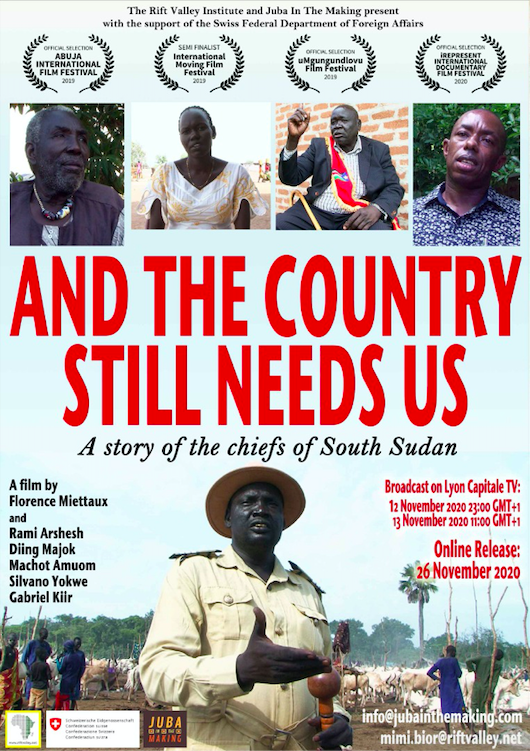 Over the past five years of RVI’s South Sudan Customary Authorities (SSCA) project, the Institute has built a strong level of trust with customary authorities across the country. Continued engagement with chiefs is essential, particularly in finding ways to support and present the views and interests of their communities at the national level, and to positively influence the political and social realities of South Sudan.
Over the past five years of RVI’s South Sudan Customary Authorities (SSCA) project, the Institute has built a strong level of trust with customary authorities across the country. Continued engagement with chiefs is essential, particularly in finding ways to support and present the views and interests of their communities at the national level, and to positively influence the political and social realities of South Sudan.
Throughout phase IV (2018–19), a variety of meetings were held across the country—using the reports and research conducted in previous phases of the project as a basis for discussion—with chiefs, youth, women and the wider community. The format for these meetings differed depending on the location and the expressed interests of the participants involved.
It was within these meetings that most of the footage for And The Country Still Needs Us: A Story of the Chiefs of South Sudan was captured. The film documents the discussions during phase IV that highlight key issues raised by the chiefs themselves to stimulate conversation across South Sudan, and to better inform donors and policymakers around some of the key debates. The film maker, Florence Miettaux/Juba in the Making, utilized the meetings to present a sympathetic and nuanced picture of the realities of chiefs and their communities in South Sudan. The reactions received so far from audiences demonstrates how few opportunities there are to see these realities documented.
It is our hope that by documenting individual stories and histories from chiefs and youth across South Sudan, we would contribute to a broader picture of the realities of customary authorities in South Sudan.
Research under the project has been conducted in a range of locations across the country and outside including Aweil, Bentiu, Mayen Rual, Pibor, Yirol and Northern Uganda. The film draws on this work in some of these locations and as the project moves forward we are working to find ways to document a wider range of voices and experiences from across South Sudan.



